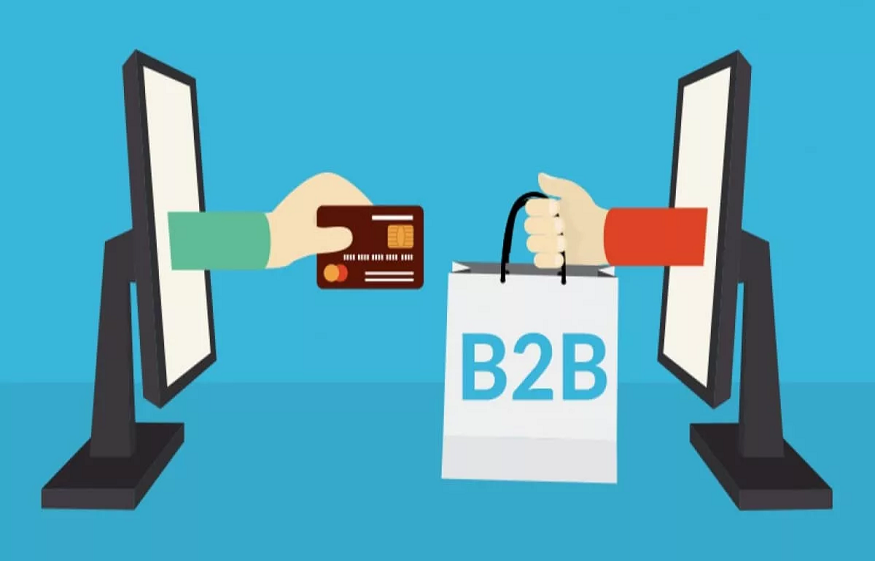QuickBooks is the most popular small business accounting software used to manage income and expenses and keep track of financial health. The QuickBooks product line includes several solutions to support different business needs, including QuickBooks Online, QuickBooks Desktop, etc.
This blog will discuss the significance of QuickBooks online eCommerce integration and its features.
Significance of B2B QuickBooks Online Integration in eCommerce
Streamlined Operations: The seamless integration of QuickBooks Online with the eCommerce platform helps automate and smoothen key processes, such as financial tracking, inventory control, and order management. Moreover, this integration minimizes manual data entry, reduces errors, and optimizes valuable time and resources.
Better Financial Insights: QuickBooks Online encompasses robust accounting features that facilitate the accurate and latest financial data for wholesale businesses. The eCommerce platform integration helps businesses ensure their sales, expenses, and transactions are recorded accurately. Due to this, informed and sound decisions can be made.
Effective Order Processing: B2B QuickBooks integration in eCommerce enables smooth order processing, permits the production of invoices, updates inventory levels, and tracks payments coherently. Due to this, the overall operational efficiency gets enhanced, and customer satisfaction improves.
Inventory Management: The integration of QuickBooks Online with eCommerce ensures real-time inventory synchronization. Due to this, any change in the inventory level leads to automatic updates, preventing overselling and inventory disparity. This effective inventory management minimizes the menace of stockouts and enhances supply chain management.
Better Customer Relationships: Customer information can be centralized through B2B QuickBooks integration. Businesses can easily access customer information, such as their profiles, order history, and payment records, enabling personalized communication, targeted marketing, and enhanced customer service.
Features of QuickBooks Online
The integration of Quickbooks and wholesale business management multilanguage provides a centralized system for the management of wholesale orders efficiently cross-border. Moreover, customer-specific pricing and discounts can be easily managed to ensure accurate pricing for each wholesale account.
The advanced financial tools of QuickBooks help streamline the accounting process, such as informed financial reports, payments, and invoices for wholesale businesses.
Automating the transfer of orders, customer information, and invoices between the eCommerce platform and QuickBooks Online reduces the scope of errors and optimizes time.
Steps to Migrate from QuickBooks Desktop to QuickBooks Online
Assess Your Data
First, evaluate your existing QuickBooks Desktop data and identify which information needs to be transferred to QuickBooks Online. Due to this, informed data analysis can be done, leading to a smooth transition and preventing data loss during the migration process.
Data Backup
Before migration, having a backup of your QuickBooks Desktop data helps ensure you have a secure copy of all financial information. This step ensures you can restore data if needed.
Select the Subscription Plan
Choosing the appropriate subscription of QuickBooks Online based on your B2B business needs. You can consider the features, such as the number of active users, required features, and integration capabilities with the eCommerce platform or any third-party apps.
Create QuickBooks Online Account
Set up your QuickBooks Online account and customize account settings, such as your business details, tax settings, and financial inclination, to orient with B2B eCommerce operations.
Import Data
You can import your data from QuickBooks Desktop through the tools provided by QuickBooks Online. Follow a sequenced approach to import the data of customers, products, vendors, and previous transactions. To ensure a seamless transition, make sure data is mapped accurately.
Confirm Your Accounts
After importing your data, restore your bank accounts, financial account, etc, in QuickBooks Online. This step helps match the balance with financial records and ensures accuracy in B2B eCommerce transactions.
Build Integration
Set up QuickBooks integration in eCommerce or with any other essential app. Due to this, seamless integration of data can be maintained, streamlining order management and simplifying the accounting process.
Train Your Employees
Make them familiarized with new features, functionality, workflows, etc., to bring out the maximum benefits of migrating from QuickBooks Desktop. Moreover, ensure they understand how to navigate the interface, produce reports, and build and manage transactions. Overall, for the efficient working of QuickBooks Online and streamlined B2B, the team should know the overall functionality and how to use the various features.
Final Thoughts
QuickBooks Online eCommerce integration offers numerous benefits for B2B eCommerce businesses. With the advanced features of QuickBooks Online, businesses can streamline their accounting process and drive growth. By following the migration steps, businesses can optimize B2B eCommerce operations.
Enhance your eCommerce efficiency effortlessly with seamless QuickBooks Online integration. Streamline B2B operations by employing QuickBooks Data Entry solutions, ensuring meticulous accuracy and real-time financial insights. Simplify your workflow, track transactions, and manage data seamlessly, empowering your business with an integrated system that maximizes productivity and precision.




